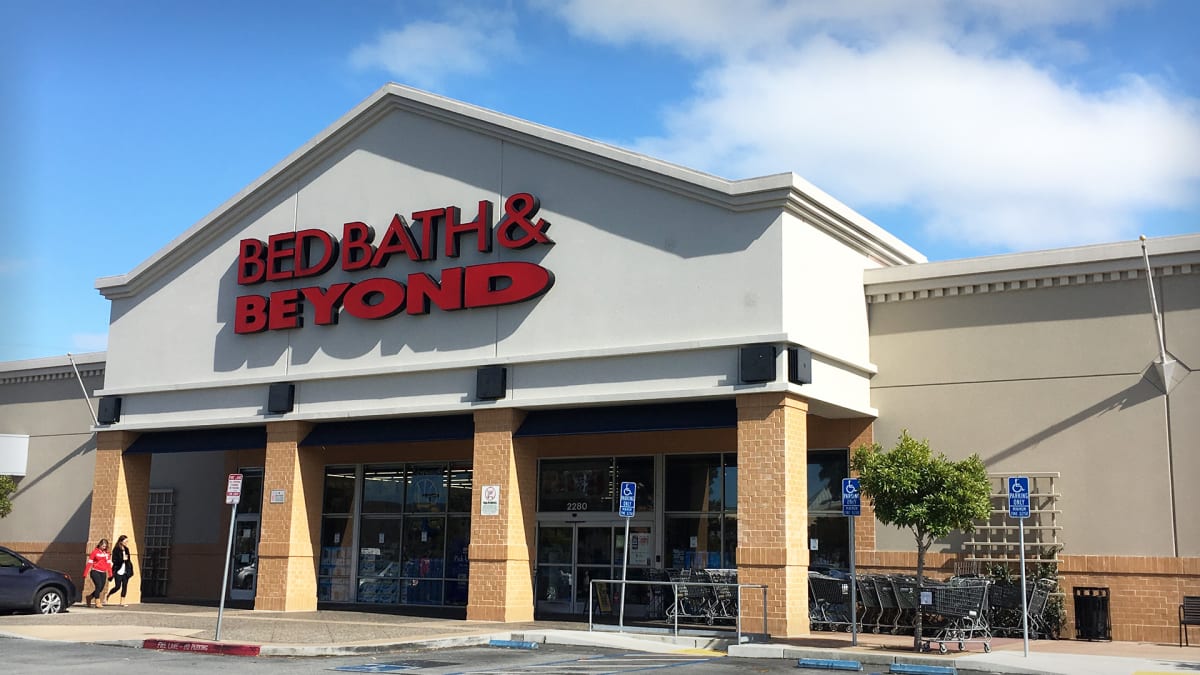
Shares of home goods retailer Bed Bath & Beyond (BBBY) sunk by over 46% on Tuesday despite a fresh injection of much-needed capital.
The company said it would raise the funds via a public offering, but shareholders punished the beleaguered retailer whose stock has fallen by over 80% during the past year.
Issuing the preferred stock is a ‘last gasp’ effort by the retailer who will still have to file for bankruptcy, according to Wedbush analyst Seth Basham.
He believes that the equity in Bed Bath & Beyond will be worthless later on, as equity holders typically receive no funds when a company files for bankruptcy.
“We see these capital-raising transactions as a ‘last gasp’ to survive before filing for bankruptcy protection where the common equity would likely be worthless,” he wrote in a Feb. 7 research note.
Known for being a meme stock during the pandemic that was fueled by eager investors, the stock skyrocketed by 92% on Feb. 6. Other meme stocks also surged.
Basham cut the price target on the stock to zero from an already low price of $1 a share. The stock is trading at $3.06 at 1:07 p.m. ET.
Bed Bath & Beyond's strategy seeks to produce more liquidity for the retailer, giving it more time to make payments toward its loans that are already in default.
The retailer said on Feb. 6 after the market closed that it will sell convertible preferred stock as well as warrants to purchase common shares and convertible preferred stock.
Bed Bath & Beyond said it plans to raise a minimum of $225 million from the stock sale, but sought upwards of $1 billion, according to a Securities and Exchange Commisson filing.
The retailer has said in the past that filing for Chapter 11 protection was a near-term possibility since it has defaulted on several loans.
The company received commitments from investors to raise at least $225 million, the Wall Street Journal reported on Feb. 6. Additional funds of over $1 billion are expected to come from additional investors, sources told the WSJ.
The retailer said that JPMorgan Chase (JPM) and several other creditors were willing to give the company more time if the capital was raised, according to a SEC filing.
Basham said even these moves are not sufficient to save the company from filing for Chapter 11 protection eventually.
“If successful, this series of transactions would buy the company more time,” he wrote. “However, free cash flow was a whopping minus-$403 million in its fiscal third quarter while cash-on-hand stood at just $153 million at the end of the period, and we expect minus-$170 million in free cash flow for the fourth quarter.”
The closure of 141 Harmon stores in 2023 is a good attempt at stopping "the bleeding along with other cost cuts, but comps will need to stabilize and vendors will need to have clarity on liquidity (to accept more normal payment terms) for the company to survive.”
Morgan Stanley equity analyst Simeon Gutman has a price target of $2 for the retailer with an underweight rating.
"BBBY's core business faces challenges: its value proposition has eroded, it has lost market share, gross margin and expense headwinds have persisted and e-commerce encroachment is accelerating," he wrote in a research report.
He goes even further to give a bear case of 25 cents a share, resulting in negative equity value.







